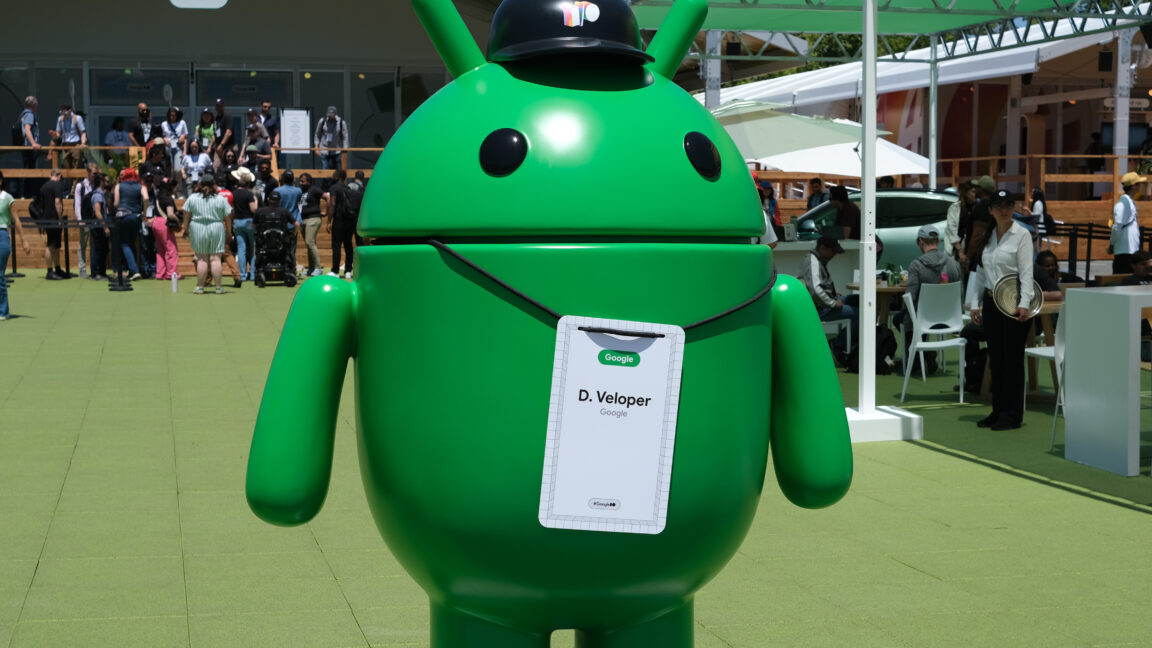The Android ecosystem has been feeling more like an invasive chaotic advertisement machine the past few years. The play store is a cesspool, the weather app switch was poorly executed, Google Podcasts went to the graveyard, and Google pay getting shut down meant I had to switch back to vomits Venmo.
I still have Android gaming handhelds, but why wouldn’t I just get an iPhone the next time I go to replace my phone? I can’t believe I’m even saying that after being so die hard Android so for years.
Oof, time to bite the bullet and switch email providers. Shit like this is why I’ve spent the last couple years de-googling my life.
Do it! It’s not that bad. Everyone’s got different needs, but I switched to fastmail and have been enjoying it.
If you’re making the switch anyway, get yourself a domain name from a separate company to run it through. That way in the future you can keep using your domain even if you switch mail/web-hosting providers.
Two minor concerns about this approach:
-
Will the lesser known domain name make your emails more likely to be filtered as spam? I don’t know the answer, but I am fairly sure it wouldn’t help.
-
Will having your email routed through a middleman open up security issues? Probably solveable with diligence and awareness, but I recently had a non-technical friend with this setup get his Gmail breached because he was forwarding it to an email inbox on his personal domain from decades earlier that he forgot about, and didn’t have 2FA on the domain webmail. IMHO an easy oversight for anyone, honestly.
- The domain name has no effect on spam filters, it’s all about which server is sending it and if the domain is properly configured with MX records, DKIM signing keys, etc… A custom domain with mail sent from a major mail provider won’t get sent to spam any more than a new gmail account.
- Mailboxes for a custom domain work exactly the same as any other email. There is no forwarding to another mailbox or provider unless you configure it to be that way. You should be pretty careful with what settings the mail server is configured with though, because encryption is optional…
-
I have a domain and an email address through it, but my problem is I can’t find a domain name I like enough to both keep and give out to others as a long term contact point. The one I have right now is silly, and not easy to communicate over the phone.
It’s a me problem, but if I ever figure out something I’m will to keep and is available, that’s the goal.
Have two:
The silly one for personal or non-professional stuff like Steam
The professional one for the ones you are meeting irl.Yeah, that’s the part I’m having trouble with. Can’t decide on something serious, easy to communicate and that I like. Definitely a me problem.
How about “MyEmailDomainDotComButThatWasTheWordDotNotADotSymbolDot.com” - super easy to communicate
Damn, someone beat me to it!
The domain I use professionally is simply my full name. Then I use a catch-all so I can give out a mailbox specific to who it’s for. Often that looks like YourCompany@MyName.com That way if I get spammed I know who to blame.
Fuck Google
Last I checked, unverified software didn’t run the risk of making my phone fly itself into, and bring down, a skyscraper.
Ok this needs harsh pushback, because phones are affordable, computers are not. There needs to be a massive project dealing with making phones platform agnostic.
Have you shopped for those items recently? You have 200 buck computers and 2000 buck phones.
“
Don’tBe Evil”They removed that a long time ago. I mean think about it, evil is a pretty strong term, most people don’t want to be evil. That they chose to remove it from their motto tells you everything.
Mobile desperately needs hardware with first class open source drivers and firmware to get away from Google/Apple/Microsoft controlled software platforms. Phones have been super powerful for a long time beyond what most need. We can take hit in theoretical peak performance to build up a better ecosystem until the market is large enough that the big money has to address the market
It exists and will exist for a pretty hefty premium. Not because the makers want to. But frankly the interest in owning and controlling your hardware is more rare than we’d like. So like any niche hobby the hardware will be expensive.
This is dystopian.
so basically i have to send in my id to google just to sideload a test apk i made in flutter to my own phone to test it out?
Just like apple. 😔
Ad it’s just another data point for corporations and governments to be able to tie all your tech activities to your real identity. Great for surveillance!
and if it will work like the play store, you will need to upload an apk* and download the signed version, so it’s not even immediately obvious if they changed anything.
* not really an apk but an intermediate build product
Ffs if I have to move to apple before the third option is stable.
I will forever lament my windows phone. Ironically, it was the only option that didn’t need to be rooted to do custom shit. You could just screw with the registry and program with .net and direct X
It didn’t live long enough to become a villan
I’m surprised how Microsoft just took all of Google’s deliberate sabotages without any fuss.
Though in the end what really put the nail on the coffin was Pokémon Go.
Wasn’t Apple sued for not allowing sideloading?
You will be able sideload but the developer has to be authorized by Google. I.e. you can still install apps from f-droid but people publishing apps on f-droid will have to register with Google.
deleted by creator
This might be an issue because f-droid re-signs apps with their own keys…
I mean depends on enforcement I guess.
I dont have an issue with a feature to allow my phone to automatically veirfy signatures. But there should be a way to import/configure more signature verification providers including my own authority and even then it should still allow imstall if user really want and trust it.
Of course, the real issue is that it requires developers to sing up into Google’s ecosystem to distribute any apps. The entire ecosystem of mods and alternative stores will be fine but it’s just another proof Google is trying to kill it.
I am toying with the idea of creating a PDA of sort from a raspberry pie, touchscreen and a powerbank. Case can be 3d printed, it would be bulky af and equipped with Tails or some other secure OS.
Well. They will try anyway.
EU: How often do I have to teach you, old man?
EU is moving full steam ahead toward the end of “private” computers and mandatory state surveillance on your devices. They’ll be delighted with that. The funky “hey, we’re consumer friendly” times are over.
EU: Thank you Google for complying with the DSA.
This is a a huge part of it, the whole “prevent illegal” parts.
- “easier reporting of illegal content”
- “less exposure to illegal content”
- “level-playing field against providers of illegal content”
The EU isn’t going to punish them for this, they will hold this up as the golden standard.
The Cyber Resilience Act may also have something to do with this.
Just as they did with Apple when they forced them to allow sideloading? So yeah, the EU will push massively against this if its implemented there.
You mean when they forced Apple to implement the “trusted trader” scheme.
No, i mean when they forced apple to open their IOS system to side loading custom, unverified apps.
Here, have a read:
https://support.apple.com/en-gb/117767
The trusted trader scheme only applies if you want to distribute your app via the official apple iOS app store.
The DSA requires people offering apps (“traders”) to provide certain information. For example: address, email, and phone number must be made public. When Apple introduced that, this also caused some outrage and calls for EU regulation. Despite the fact that this was exactly the regulation called for. Hence, why I mentioned that trusted trader scheme.
Google may be legally required to do this. I’m not sure how the DSA is to be interpreted on this. It’s certainly not a stretch (see Article 31). It’s out of touch to believe the EU will push against this.
Okay aber schau mal. Die EU hat Apple Verklagt und gezwungen, Nicht-Registrierte, nicht gemeldete Apps und sogar Appstores auf IOS verfügbar zu machen. Für die Apps dort muss niemand irgendwas angeben, du kannst dir einfach irgendeine App von Github kopieren und auf deinem IPhone ausführen, dank dem Urteil von vor c.a. 10 Monaten.
Warum sollte dann jetzt, wenn Google das Sideloaden von Custom Apps streichen möchte, die EU plötzlich fein damit sein? Ich meine, sie haben in einem langen Prozess Apple dazu gezwungen, genau das zu ermöglichen und die Monopolstellung als einziger App-Distributor angeklagt.
Und das spannende ist ja: Diese Entscheidung wurde nach August 2023 getroffen, also nach der offiziellen Einführung und Anwendung des DSA. Heißt: Hier wurde entschieden das Sideloaden kein Bruch des DSA’s darstellt.
Hast du da eine Quelle dazu? Soweit ich weiß, verlangt Apple, dass alle Apps “notarized” sein müssen. Also das, was Google jetzt auch einführt.
Für Apps im offiziellen Store ist das explizit EU-Vorschrift. Warum sollte die EU was dagegen haben, wenn das freiwillig ausgedehnt wird (falls es freiwillig ist)?
Where does it say that Google is blocking all side loading?
It says they are blocking the installing of unsigned apps. This is the macOS Gatekeeper being the only option on Android. You can still download and install apps that aren’t in the Play Store. So the EU will still love this as 3rd party apps can still exist, but at the same time anything “illegal” can be reported to them immediately.
It’s effectively becoming the gate keeper in the same way apple only allowing app installs through its app store only is a gate keeper.
They are gatekeeping which apps you can install, not the installation method.
Which is just the loophole they’re trying to use now to assert control. This is just technicalities, the end result is that if you want to make apps for others to install they want to be the final say on you being allowed to do that or not.

Inside the EU’s chest there are two wolves.
The EU waltz.
One step forward.
One step to the left.
Two steps to the right.
Three steps back.Repeat.
Sure glad I de-googled with GrapheneOS that ironically runs on Pixel phones.
this is doubtless going to hurt whatever third party app store it is that you use anyway. if the only places sideloaded apps are available on, the only options are that custom roms like graphene become more popular, or apps that refuse to be put on Google will dry up.
which do you feel is more likely?
I’ve been hemming and hawing. Switched to Linux pretty much full time for my PC, this will push me 100% into FOSS phone. Over half my apps I use would get blocked
Over half my apps I use would get blocked
Consider many apps are just webpages. You can go to the website directly from a browser and everything is happy.
Obviously won’t solve everything, but that covers most apps right there.
A lot of people cry about banking apps not working on phones that have been rooted/degoogled/whatever. But seriously, just use their website. The app is usually just a front end for the site anyway.
Mobile check deposit is about the only perk to the apps
That’s a good point.
and if you don’t use the app, they’ll force you to pay for second factor code SMSs each and every time you log in.
Who’s still being charged per SMS in 2025? Is that still a thing somewhere?
parts of the EU
Sure I can use my bank’s website (and it’s a shit experience) but they still want me to have their own app for authentication… Don’t even offer anything else at this point.
My credit union site doesn’t scale to mobile screens unfortunately. It is a massive pain in the ass to use the browser
Correction, looks like they finally updated it a few months ago to scale.
That’s yet another trend that’s made me less and less interested in things. You’re not wrong though and will likely be my fall back
Now that the Pixel 10 is out, the Pixel 9 prices are falling. If you’re going to load GrapheneOS, you need to make sure you get a phone that has an unlocked bootloader, which is different than being carrier unlocked. Any phone that was initially sold through a carrier like Verizon or ATT will have a locked bootloader, as the carriers don’t like people messing with the phone software to unlock features that they may charge for (e.g. hotspot).
That’s a good point for the future, but I meant on my Pixel 6a and I bought it directly through Google.
Well then, you’re already all set. Google edition phones all have unlocked bootloaders. I’m currently running a Pixel 6 Pro with GrapheneOS. It’s super easy to install and use, even if you’ve never messed with your phone before. I’ve been looking to potentially upgrade to a newer phone, because mine is a few generations old and Graphene doesn’t support phones forever, though they do for quite a while. An unlocked Pixel 9 Pro is around $550-650 right now, but I’ll probably wait another 6 months, as the prices will probably fall another $100-$200 in that time frame.
Be careful. I’ve read reports of at least two Pixel 6a devices bursting into flames.
My mom has a Pixel 7 we are replacing because it gets incredibly hot for no apparent reason.
Google has actually released a software update to try to prevent the modem battery issue and are replacing the battery in affected models for free. Rare easy win from a megacorp
Even after the software update a battery caught fire.



















